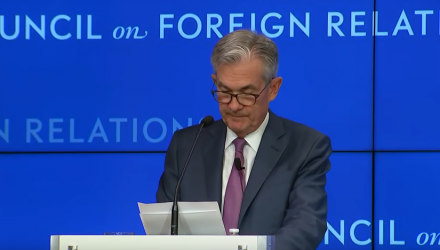The capital markets will keep their eyes and ears fixated on Federal Reserve Chair Jerome Powell this week as he’s scheduled to answer questions on the economy as he testifies before the House Financial Services Committee Wednesday and at the Senate Banking Committee Thursday. What he says or doesn’t say could put U.S. equities at a position of strength or weakness versus international equities.
Powell will certainly field a question or two regarding whether a rate cut could be ahead. A data-dependent Fed could use the latest June jobs report as a reason not to implement a cut.
Recent jobs data showed that the U.S. economy added 224,000 jobs last month, which easily bested a Dow Jones estimate of 165,000.
“It’s not clear to me the data are going to create a screaming case one way or the other. What it comes down to, is the Fed able to validate the market’s dovishness here?” said Stephen Stanley, chief economist at Amherst Pierpoint. “The one thing that has characterized Fed communications over the last month or six weeks is they’re just not willing to commit to anything ahead of time.”
The central bank has been showing its more dovish side so far this year, which pivots from 2018’s rate-hiking bonanza with possible rate cuts to come before the end of 2019. Additionally, fixed income investors are facing other challenges like inverted yield curves and signs of slowing global growth, which means that getting strategic is a must in the bond market.
The Fed didn’t give capital markets the rate cut they might have been expecting last month, but the major indexes responded positively because they left the door open for reductions in the federal funds rate by year’s end. Federal Reserve Chairman Jerome Powell said that the central bank would adjust interest rate policy as necessary or whatever the economy dictates is best through 2019.
U.S. President Donald Trump plans on sending the names of Christopher Waller and Judy Shelton to the Senate as potential Federal Reserve governor appointees. Both would share in President Trump’s philosophy of the central bank doing what it can to help spur growth of the economy, including lower interest rates when necessary.
For investors looking for continued upside in U.S. equities over international equities, the Direxion FTSE Russell US Over International ETF (NYSEArca: RWUI) offers them the ability to benefit not only from domestic U.S. markets potentially performing well, but from their outperformance compared to international markets.
On the flip side, the Direxion FTSE International Over US ETF (NYSEArca: RWIU) gives investors the opportunity to capitalize on their hunch that international equities will outdo U.S. equities. RWIU seeks investment results, before fees and expenses, that track the FTSE All-World ex US/Russell 1000 150/50 Net Spread Index. The FTSE All-World ex US/Russell 1000 150/50 Net Spread Index (R1AWXUNC) measures the performance of a portfolio that has 150% long exposure to the FTSE All-World ex US Index and 50% short exposure to the Russell 1000 Index.
For more market trends, visit ETF Trends.

